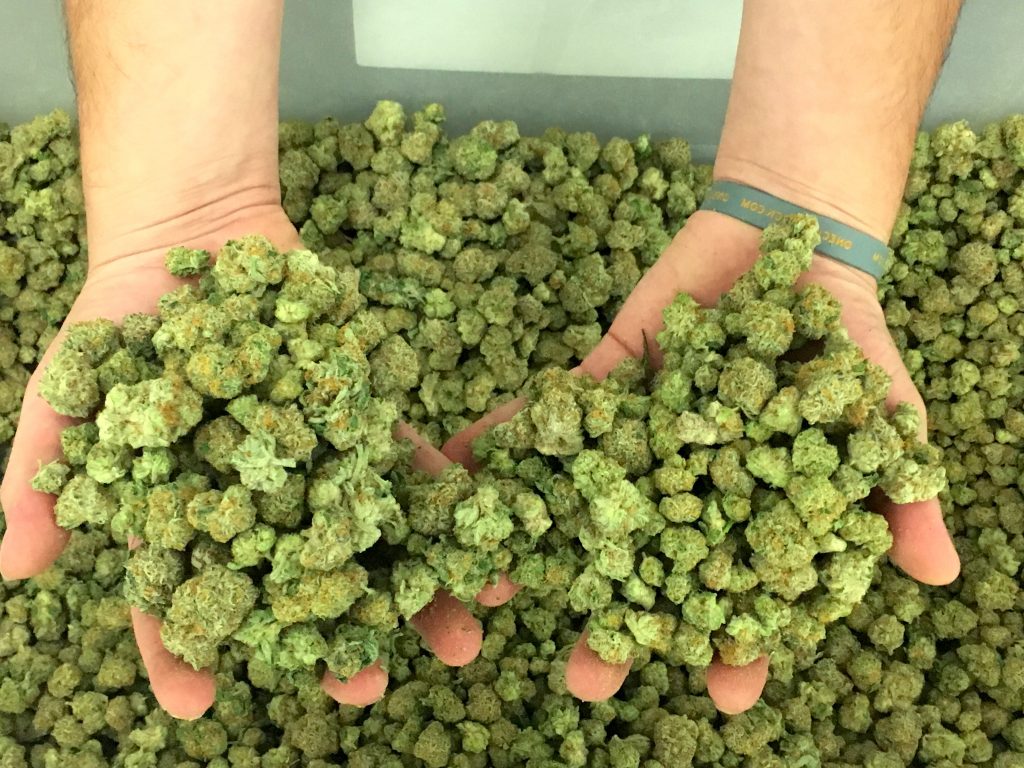There is a constant tension among cultivators, dispensaries and shoppers who seek something new. Producers are locked into a certain time frame from seed to market by the variable growth schedules of different cultivars. Dispensaries can only stock so many products at a time, and regularly need fresh inventory. And consumers—now more than ever—demand novelty.
Shoppers are eager to explore a wide variety of strains and the effects they produce. As a trend, it’s little different than the seasons of popularity that IPAs, Belgians and stouts cycle through in the craft beer industry. Constant innovation is now table stakes, and growers have to be strategic in their quest to always provide something new, balanced with the proven stock in their strain libraries.
Meeting these different demands, however, presents logistical challenges for cultivators, who must anticipate what the next hot cannabis strains will be months in advance. And that’s where a focus on sourcing the best cannabis genetics becomes a necessity for any plant-touching business that wants to increase profits and stay competitive.
After all, cultivators are racing against one another to be first to market with certain of-the-moment strains. Phenohunters pop seeds independently, and it’s inevitable that even the most exclusive strains get leaked to competitors and the broader market. Investing in quality cannabis genetics is the surest way for producers to differentiate themselves even if they happen to release the same strains as their competitors on a similar time frame.
Take the trendy Mac 1, for example. If 10 wholesalers each try to sell their Mac 1 to a single dispensary, the buyer will be making their selection based on the best value and their experience with the cultivator. The Mac 1 that’s offered at the intersection of the best price and quality will earn a place on the shelf. Dispensaries aren’t going to flood their shelves or fill their jars with identical offerings differentiated only by brand names or packaging—that approach would be the opposite of the novelty and variety their customers are looking for.
The last grower to come to market with MAC 1 will make it difficult to make it on that shelf. Better to be on the other side, where you are the grower with the new offerings and the only provider of certain new, hot flavors. Therefore, cultivators should prioritize variety and establish a process for bringing new and exclusive offerings to market, as often as is practical.
Look no further than the success of West Coast-based Cookies to see how this strategy plays out. Because of the brand’s emphasis on genetics, Cookies gets to drop attention-grabbing new strains like hotly anticipated albums. By the time other brands are releasing their version of widely recognized Girl Scout Cookies (aka GSC) or Gelato, Cookies has moved on with multiple new offerings. They’re often one step ahead of the competition because they’ve built their brand reputation on identifying and developing trend-setting cultivars with quality that delivers.
So back to that tension among producers, retailers and cannabis consumers. Dispensaries like to stock Cookies products because they consistently sell well and garner a good price. That rewards the brand for investing in genetics and licensing with reputable cultivators. And the end consumer gets to enjoy the latest, dankest weed. Even Cookies’ competitors eventually benefit, too, when they catch up and release their own take on customers’ now-established favorite strains.
When good genetics are in play, everyone wins. So how does a cannabis company get a jump on the genetics game? It starts with building a strong strain library full of popular, sought-after phenotypes. Even when novelty is the name of the game, it’s wise to always have a few consistent, reliable classics on deck.
As for sourcing the popped seeds and clones it takes to build that strain library, you’ll need strong working relationships with respected cannabis breeders. A cannabis genetics consultant like Next Big Crop can assist on both fronts by forging connections and advising on how to build and maintain the strain library itself, both figuratively and literally. And from there, an experienced cultivator can shepherd each new strain selection from the nursery to the grow room to the dispensary shelf.
